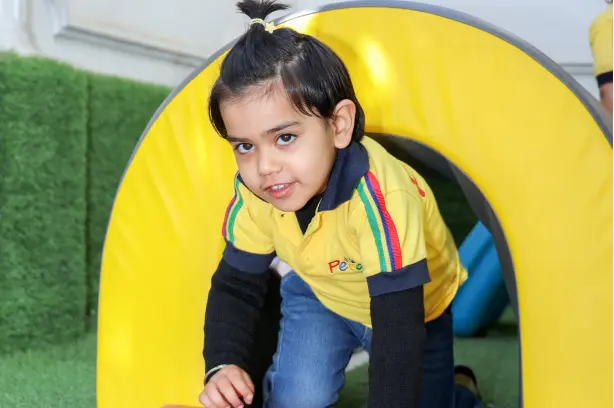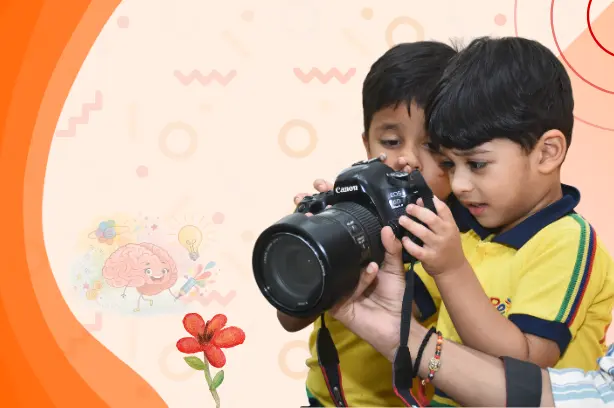12.05.2023
Introduction
The Significance of the First 1000 Days in a Child's Life
The first 1000 days of a child’s life, a period that begins with birth and goes up to when the child reaches age 2, are critical for their development. Every day of this trip is unique and affects how they grow, evolve, and learn for the rest of their lives.
Rapid Brain Development in Early Childhood
During this time, a child’s brain develops rapidly, and experiences can have a significant impact on their future health and well-being. Early childhood education, particularly preschool, can play a vital role in a child’s development during these early years.
During the first 1000 days of a child’s life, the brain develops at an incredible rate, with neurons forming new connections at a rate of up to 1 million per second. A child's experiences during this time can have a significant impact on his or her brain development, influencing their ability to learn, communicate, and form relationships.

This is why it gets crucial to provide children with stimulating experiences during these early years, including exposure to language, music, and social interactions. Preschool provides children with the opportunity to learn and develop in a safe, structured, and loving environment.
It allows children to interact with other children of their age and provides them with the social and emotional skills they need to succeed in school and in life. Preschool lays the groundwork for future learning by assisting youngsters in the development of their linguistic and cognitive abilities.
The Impact of Early Experiences on Brain Development
In the first five years of a child's life, every touch, movement, and emotion in a young child’s life translates into an explosion of electrical and chemical activity in the brain, as billions of cells are organizing themselves into networks requiring trillions of synapses between them.
Experiences and interactions with parents, family members, and other adults influence the way a child’s brain develops in these early childhood years. And how the child develops during this period sets the stage for later success in school and the character of adolescence and adulthood. Children can get the experiences they need in preschool, such as a language-rich environment and social interactions with their classmates, to help them develop these skills.
Also, it can aid in the growth of children's physical abilities, including hand-eye coordination and fine motor skills. These abilities are crucial for future academic achievement since they serve as the basis for abilities in reading, writing, and mathematics.

Creating an Optimal Environment for Early Childhood Development
During the first 1000 days, a child's brain undergoes remarkable development, laying the foundation for their future cognitive, social, and emotional well-being. Creating an optimal environment involves a combination of nurturing care, physical surroundings, and social interactions. Providing a loving and secure attachment with primary caregivers fosters a sense of trust and emotional stability.
A safe and stimulating physical environment, with age-appropriate toys and activities, promotes exploration and cognitive growth. Additionally, positive social interactions with family, peers, and caregivers enhance language development, social skills, and emotional resilience. By ensuring the right environment, we maximize a child's potential, laying the groundwork for a healthy and successful future.

Conclusion
The first three years of life are an extraordinary and vital part of child development. Children develop from being almost entirely dependent newborns to independent, communicating individuals who can dance, sing, and tell stories. The early years of education are important and what happens during that period can affect children for the rest of their lives.
In conclusion, the first 1,000 days provide an opportunity to create more equal beginnings, and put all children on a path to success. Veterans suggest that young children have the best chance of thriving when they are well-nourished, cared for, and protected from disease, violence, and toxic stress. And when children are given a good start, it is beneficial to all of us. The future of each child—and ours—will be determined by what we do—or don't do—today to intensify their highest potential.
Explore more topics

A child's world begins long before school begins. The early years shape a child's brain most rapidly, not in primary or secondary school, but right now. Every sound, sight, and feeling mold their min
Learn more
IntroductionDo you require guidance regarding the best online Preschool for your child? With so many options available online, parents may have difficulty selecting early online year education program
Learn more
IntroductionParents are frequently torn about whether or not to send their children to daycare. Parents who send their children to daycare frequently feel guilty about their excitement about their chi
Learn more
IntroductionOver the past years, preschool education in India has witnessed a significant increase in demand. Indian parents are increasingly recognising the importance of early childhood education. T
Learn more
IntroductionYou might be in a predicament of how to choose the best preschool franchise. Choosing the Best Preschool Franchise can be a smart choice for those who want to start a preschool business. B
Learn more
If you've ever cradled a newborn and tried to fathom the mysteries of that tiny head, you're not alone. The early years are a period when every encounter has the power to define a young mind, carving
Learn more
IntroductionThe associated restrictions keep the elders stressed, so it’s normal if the children feel bored at home. As a parent, it is our responsibility to engage the child productively. For the l
Learn more
What is a Preschool Franchise? Preschool Franchise is an unsurpassed small-scale franchise business that draws on incredible ROI (Returns on Investment). Well, before we jump to learn about the Top
Learn more
IntroductionCovid-19 Pandemic has adversely affected life across the globe. Family life, school & office closures, limited income sources, restricted social gatherings, and other changes undoubtedly i
Learn more
IntroductionIn preschools and daycares, it is crucial to ensure the health and safety of the children. One of the elements that contributes to the school's safety, health, and psychological environmen
Learn more